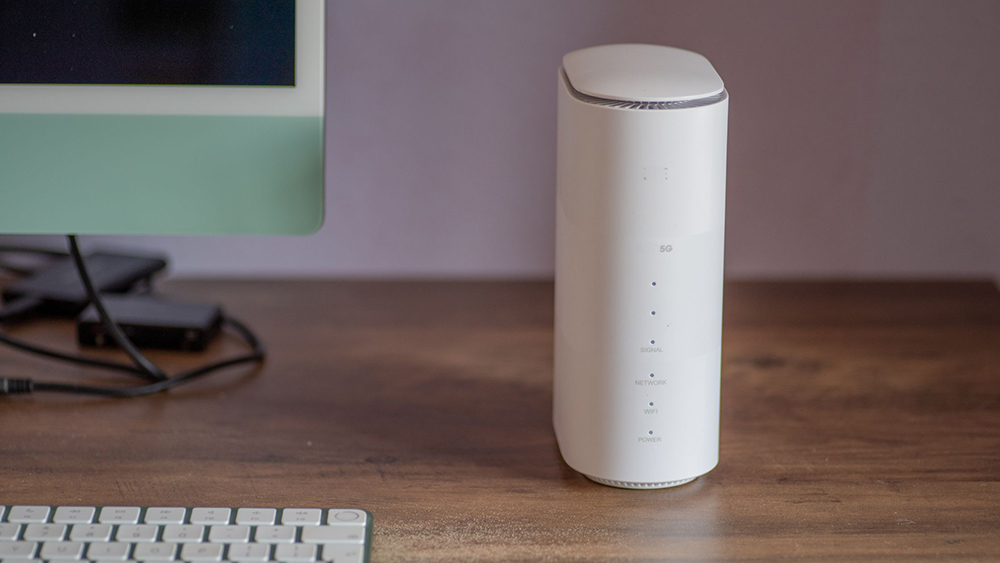Home / Handy Tips /

Understanding 5G Home Internet
In today’s fast-paced world, high internet speed is a must-have for enhancing the efficiency and responsiveness of your online activities. It enables faster downloads, smoother video streaming and seamless browsing experiences.
With the availability of 5G home internet, it poses a formidable competition to fibre in delivering high-speed connectivity. In this article, we’ll explore the advantages and disadvantages of 5G home internet and compare it to NBN (National Broadband Network).
A comparison with NBN
Speed and performance
5G’s wireless connection is able to deliver faster download speeds than NBN which transfers data through fibre optic cables. NBN typically offers 100Mbps while 5G can reach speeds of around 225-250Mbps on an uncapped plan
Deployment and accessibility
Your location plays a crucial role in determining the available options for internet delivery. The great advantage of 5G is its wireless nature, eliminating the need for cables or extensive digging. You simply need to ensure that 5G coverage is available in your area.
On the other hand, NBN requires a physical connection although availability continues to expand as its reach extends. The type of fibre connection you have also impacts the range of plans accessible through your internet service provider.
Reliability and stability
To enjoy consistent and stable internet connectivity with 5G, it’s important to have strong and reliable wireless coverage in your area. A robust 5G signal ensures a dependable connection for all your online activities.
With NBN, factors like the quality of your modem/router and the type of connection available to your home can influence the reliability of your connection. By using a high-quality modem and accessing a suitable NBN connection type, you can enhance the stability and dependability of your internet experience.
Pros of 5G home internet
Speed and low latency
Latency measures the time taken between sending information and receiving a response. In simple terms, lower latency means faster response times, enabling smoother interactions and improved overall performance.
Multiplayer gaming, video conferencing and even watching your favourite series on a streaming network all benefit from lower latency. In comparison to the 125 milliseconds of data transmission speed with LTE 4G, the impressive 4 milliseconds delivered by 5G significantly reduces latency, elevating performance.
Flexibility and mobility
As the demand for mobile connectivity continues to grow, 5G provides the flexibility to keep you connected wherever you go. The advancements in transport networks, self-driving cars and remotely operated machinery are expected to further enhance the availability of 5G, driving ongoing improvements in its accessibility and expanding its reach.
Quick setup and scalability
A big advantage of 5G is how quickly it can be set up. No more waiting around for technicians to call. Simply follow your provider’s instructions and you’ll be connected in no time.
With 5G’s network slicing feature, scaling your speed delivery becomes a breeze. It intelligently detects your device and allocates the appropriate bandwidth, ensuring optimal functionality and performance tailored to your needs.
Cons of 5G home internet
Coverage and signal strength
While 5G offers exciting possibilities, it’s important to note that limited coverage and potential signal strength issues are some of the drawbacks. These factors can sometimes lead to inconsistent connectivity and pose challenges when accessing the network in specific areas.
Potential data caps
As you explore 5G, it’s worth considering the potential for data caps that might limit the amount of data you can use within a specific timeframe. These data caps can have an impact on heavy data users, making it important to manage your internet usage wisely to ensure you stay within the allocated limits.
Reliance on wireless infrastructure
One drawback of 5G’s reliance on wireless infrastructure is the need for a dense deployment of small cell sites, which can result in increased visual clutter in urban areas.
This reliance can be susceptible to interference and signal degradation due to factors such as physical obstacles and environmental conditions.
While 5G home internet shows promise with its fast speeds and potential for widespread coverage, whether it can fully replace the National Broadband Network (NBN) depends on various factors such as infrastructure availability, data caps and network reliability.
Can 5G replace NBN?
Before deciding whether 5G home internet can replace your NBN, it’s important to evaluate your specific needs, such as internet usage requirements, geographic location and overall performance. Take the time to consider these factors carefully and make an informed decision that best suits your situation and preferences.
Need Help With Your Internet?
Need help with internet installation? Contact us today, and our team of experts will ensure you’re up and running smoothly with high-quality connections in no time.








Leave A Comment